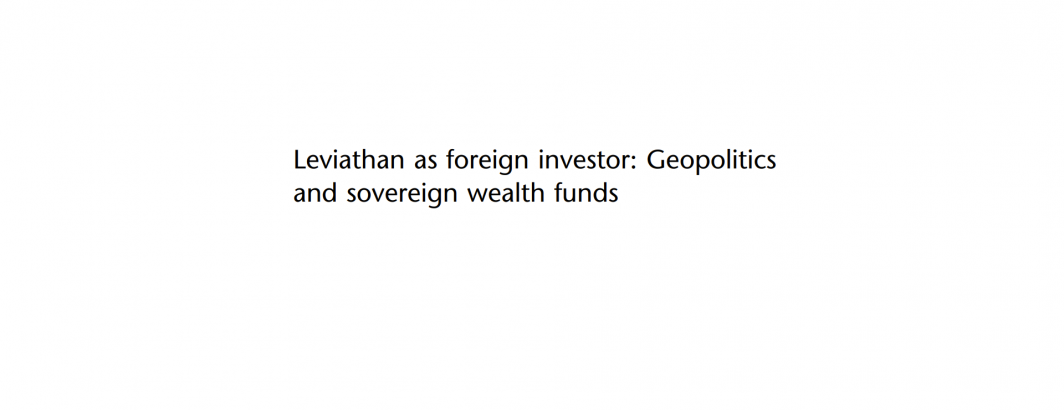
Sovereign wealth funds (SWFs) are important but understudied state investors. We investigate whether geopolitics influences SWFs foreign acquisitions, asking if and how their FDI patterns differ from those of private firms. Theoretical expectations are mixed. On the one hand, limited managerial control of target firms suggests that SWFs may be unable to pursue political goals, and thus they are no more sensitive to geopolitics than private firms. On the other hand, state ownership of SWFs can generate national security externalities and thereby makes SWFs more sensitive to geopolitics. Utilizing novel big-data measures of cooperative and adversarial relations based on media reporting and three different tests, we examine over 5800 cross-border acquisitions by SWFs and private firms. We find that home–host conflict hinders SWFs more than private firms whereas cooperation helps SWFs more than private firms. Hence, despite SWFs’ lack of managerial control of target firms, state ownership moderates geopolitical influences on their internationalization and makes them more sensitive than private firms to interstate relations. Our findings suggest that government concern over FDI by state entities goes beyond their operational activities.